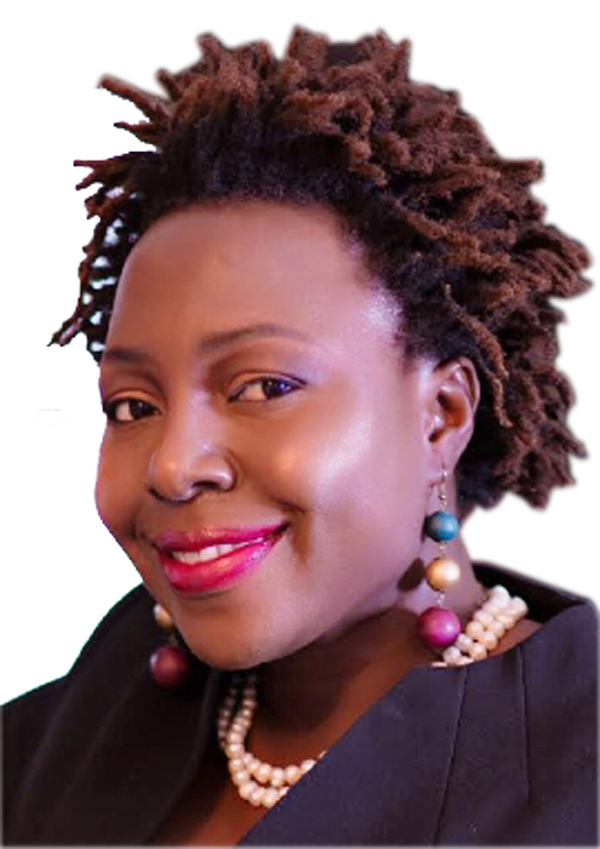
Happy new year Zimbabwe and the rest of the world, especially those who read this column. I had a long reflection on what a new year means, and I came to the conclusion that, to many it’s renewed hope of what the future holds for them. I also realised it can be another excitement with nothing really tangible to show that we are growing, transforming, changing or developing.
By Nyari
Pastors and priests from different ministries release a “message for the year” and in excitement and hope, the congregants pray fervently thinking that a miracle will occur without putting any effort to change things. For ordinary people, it could be excitement of a new idea without mastering the art of hard work and strategy ending with the same results as last year. For politicians, it could be the same old fights and diversion of focus for the masses from real issues and the singing of the same chants at the peril of poverty. Today’s article is precise — can we keep hope alive for women and communities? Last year we had so many expectations, promises that our leaders told us, jobs and improvement of the economy, investors who would make this economy alive again, promises from those who took office in the year or prior, to deliver for women and communities.

Last year we also engaged in a lot of development issues, we asked many questions and we lobbied for many human rights issues. There has also been a lot of cry-outs from communities for different issues, chief among them, the protection of the rights of girls and women who are often at risk. At TaLI, more than 300 community peer educators, close to 500 young people and 76 teachers were trained and are already working in the Midlands province to defend the rights of girls and young women. They are hopeful, but they need support from laws that work.
We cannot afford to lose hope and we cannot afford to stop caring, because the generation might just perish while we are watching. Things are not well for a lot of people who are marginalised, especially women. Young people have had a decade and a half of their lives thrown away. Reflecting on such issues has a bearing on our development as communities and a nation.
The hope that should be kept is that of at least the provisions of the Constitution to become a reality for the ordinary Zimbabwean. The Constitution was signed in 2013 but what seems to lack is the implementation and creation of the laws that reduce it to a reality for the rest of Zimbabweans. The Constitution is clear about governance and accountability issues, especially on public resources. If that happened, no one should then suffer in Zimbabwe because we have enough minerals and resources to keep us afloat and to share with the world.
Girls continue being married young. There is even a debate on whether the provisions of the Constitution on the age of majority being 18 directly translates to mean that if anybody married a girl below the age of 18 it is a crime. We cannot afford to have such mediocrity and lack of care for the next generation. Zimbabweans are waiting eagerly for the benefits of the Constitution. The law enforcement agents are unable to deal with child marriage issues because there is no law that specifically empowers them to deal with the issue.
- Chamisa under fire over US$120K donation
- Mavhunga puts DeMbare into Chibuku quarterfinals
- Pension funds bet on Cabora Bassa oilfields
- Councils defy govt fire tender directive
Keep Reading
Children are being raped and abused at the expense of a weak legal system that allows perpetrators to go back to the same communities as their victims. How can the ordinary Zimbabwean have confidence in the justice system that has exposed their children like that? I have in mind 10-year-old Tsitsi Stacey Munjoma who was killed in cold blood in 2013 by her rapist. I am thinking of a 14-year-old child in Mudzi who was allegedly killed in October by a rapist, a 45-year-old teacher, Bernard Chiwengwa. Social services need urgent strengthening.
We have spoken of a law to protect women from public violence and revenge pornography which seems to be rampant against young women in public spaces. It is my hope and that of like-minded Zimbabweans, that our government prioritises the delivery of the Constitution, thus laws that enable people to enjoy their rights.
Issues of chidren should be a priority. Issues of women must be prioritised because they are the essence of our communities. Opportunities of employment go without saying as a critical issue for the young people, so does education.
End of last year saw a small improvement in public accountability. I specifically remember joining other Zimbaweans in calling on Harare City Council pertaining demolitions of houses and the next thing they were addressing the issue in public. We also made a plea to police to ensure public safety for women and a call for an investigation of the Mbare Musika bus terminus violations of passengers, and indeed police responded. Citizens must continue to hold to account city council officials, police and all government workers and refuse to pay bribes.
We do hope that with other than members of the public calling on public officers to deliver, the laws and policies of this country should be systematic and woven into a value system that makes such services and values for all. We should never have to request and ask for them.
Here is to a constitutionalised legal system, improved service delivery, conducive business environment and hardworking 2016. May the Lord answer all our prayers from the sanctuary!
Nyaradzo “Nyari” Mashayamombe is the founder & executive director of Tag a Life International Trust, a girl child rights organisation. She is a development consultant, entrepreneur and musician. Email: [email protected]











